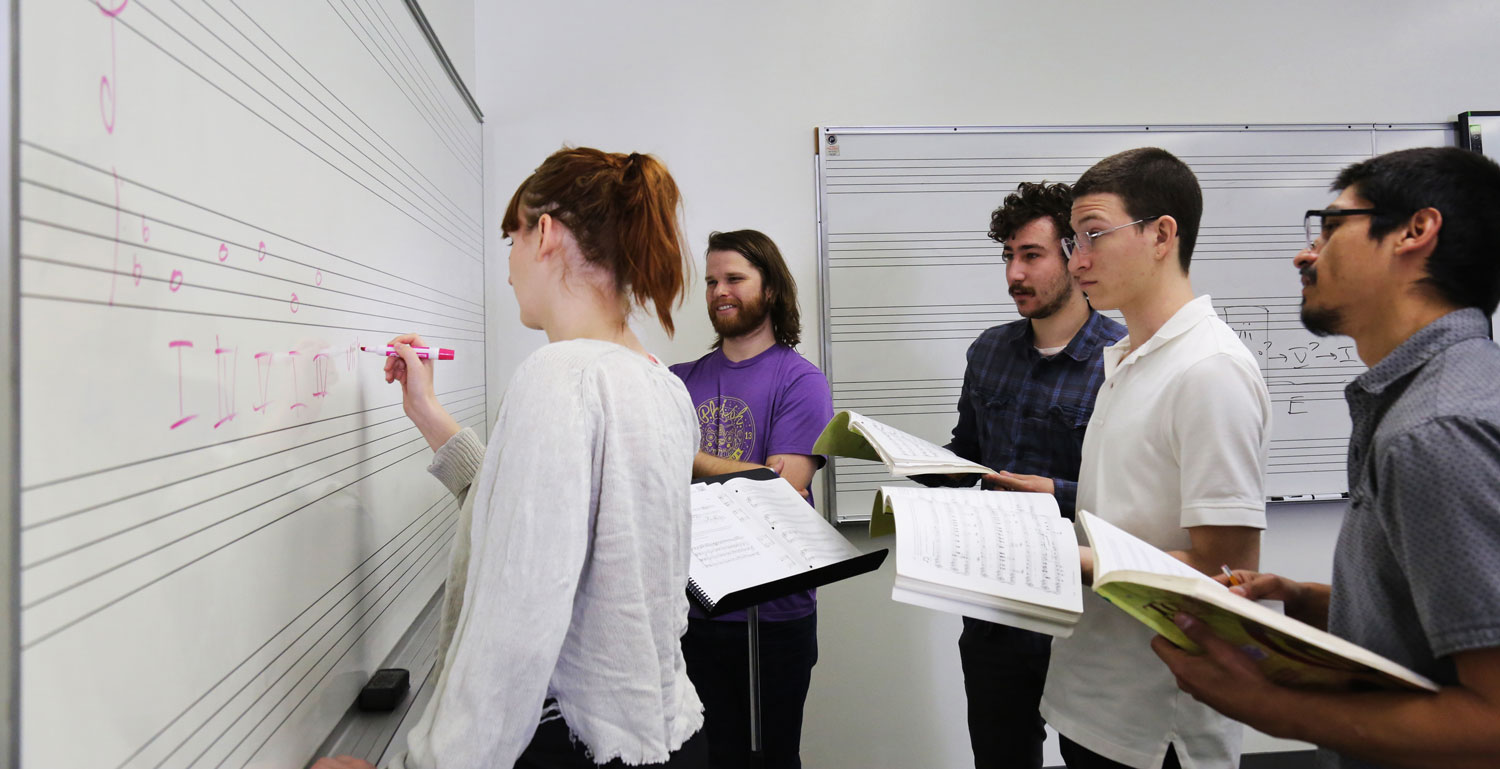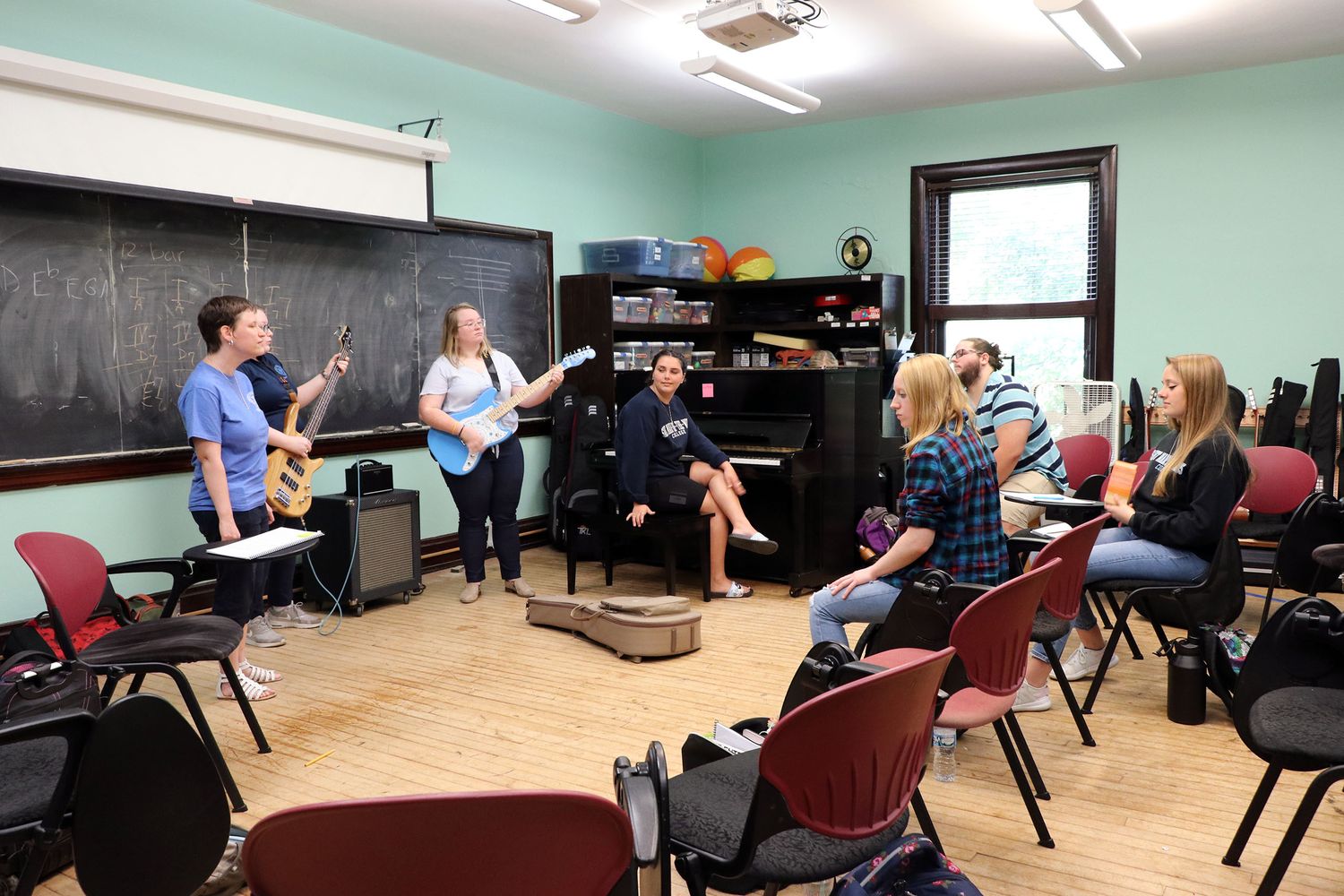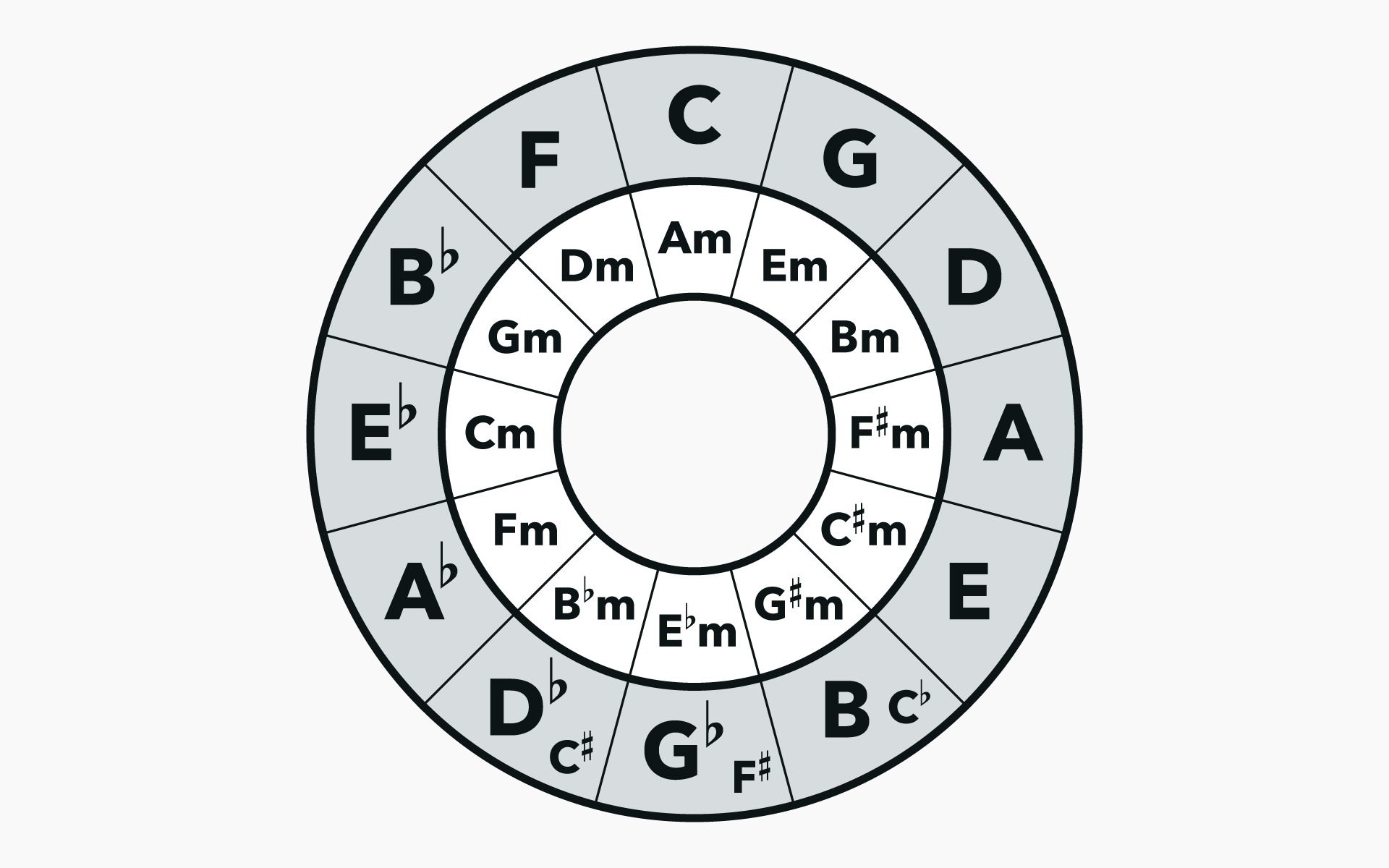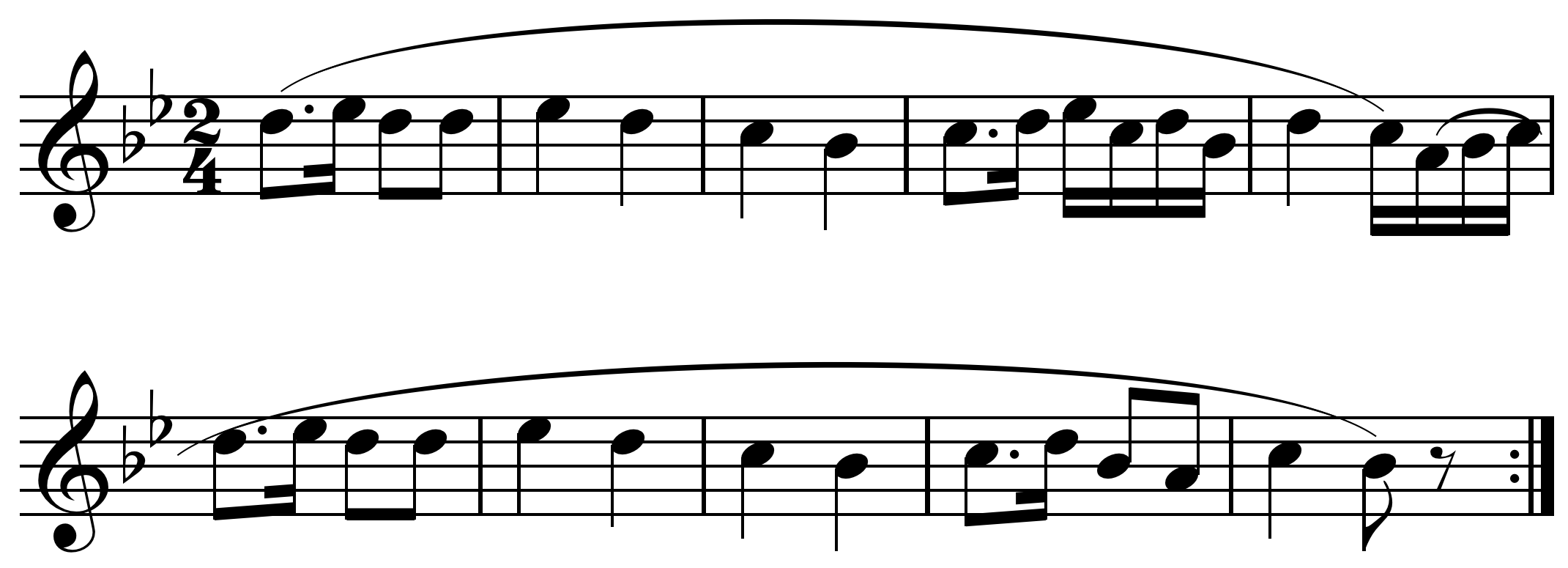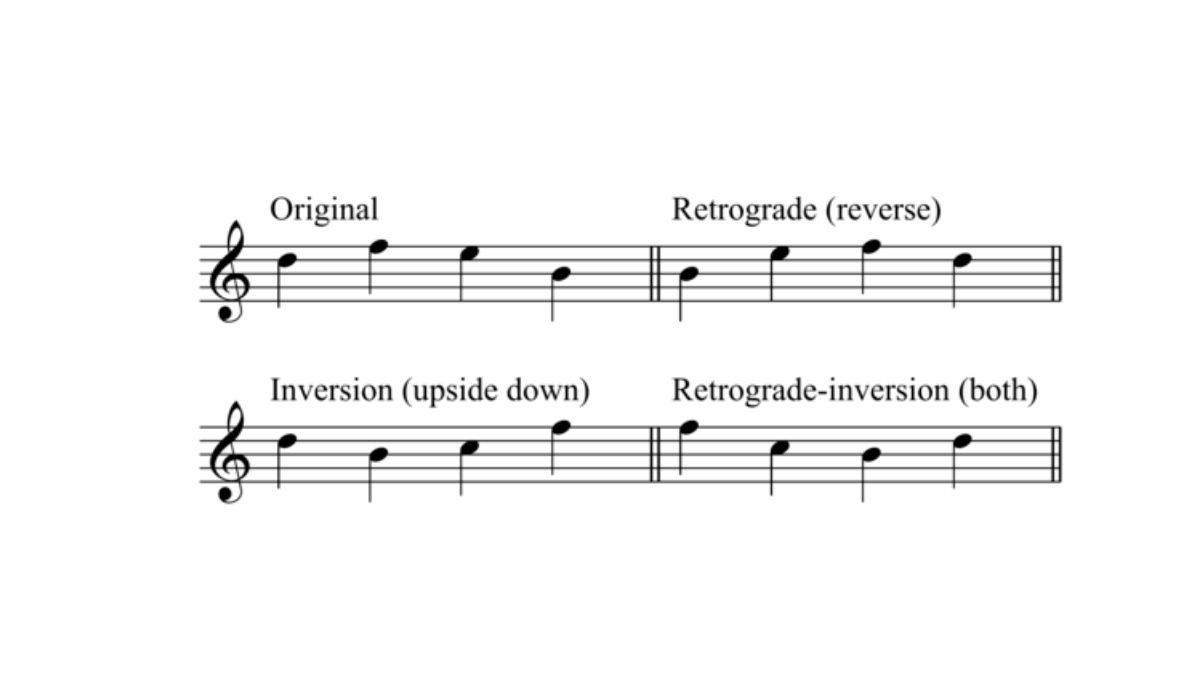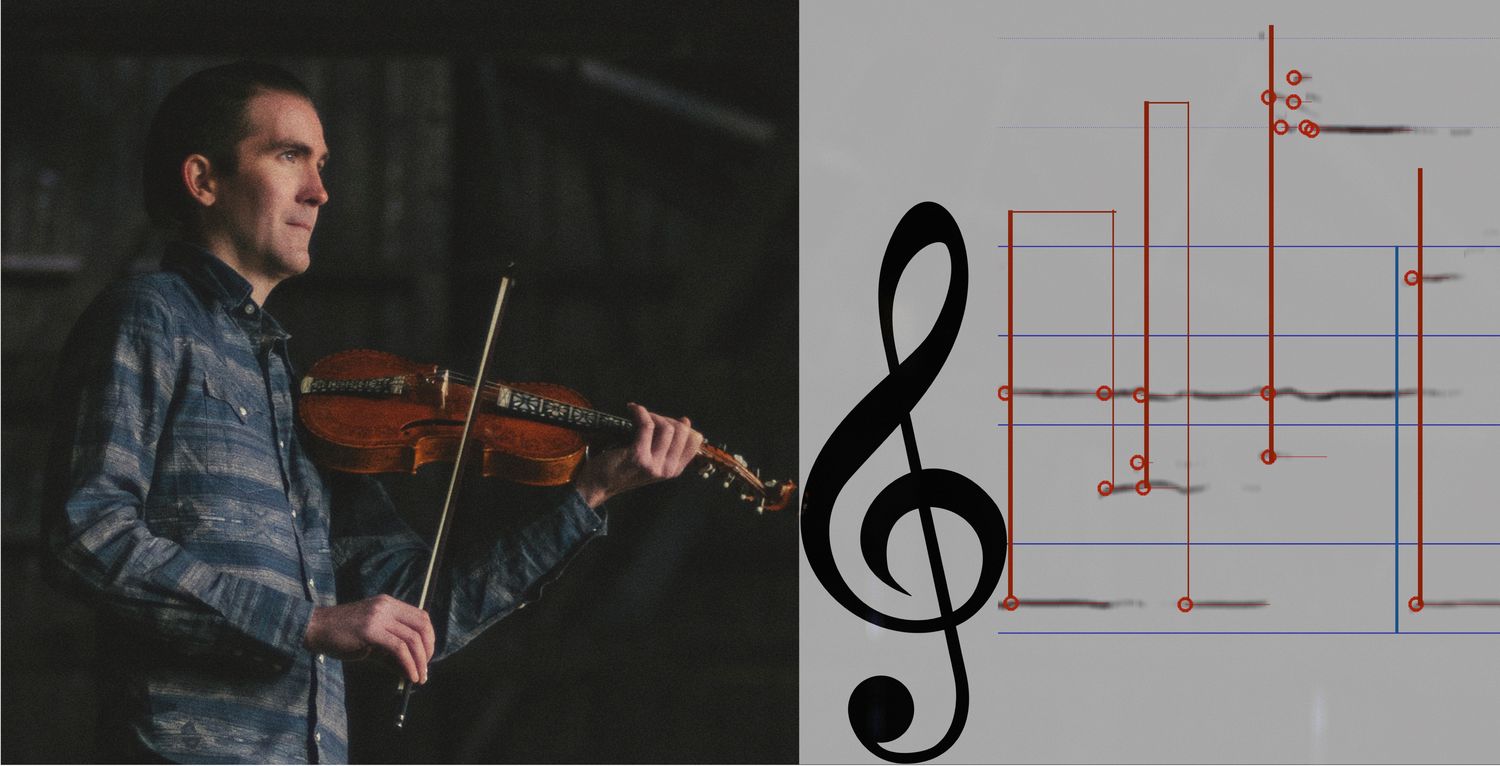Home>Production & Technology>Music Theory>What To Do With A Music Theory Degree


Music Theory
What To Do With A Music Theory Degree
Modified: February 19, 2024
Discover the endless possibilities of a music theory degree and explore career options in teaching, composing, performing, or music analysis. Unleash your passion for music theory and unlock your future potential.
(Many of the links in this article redirect to a specific reviewed product. Your purchase of these products through affiliate links helps to generate commission for AudioLover.com, at no extra cost. Learn more)
Table of Contents
- Why Pursue a Music Theory Degree?
- Career Options for Music Theory Graduates
- Teaching Music Theory
- Music Composition and Arrangement
- Music Research and Writing
- Music Analysis and Consulting
- Arts Administration and Music Management
- Performance and Conducting
- Music Technology and Production
- Music Therapy
- Honing Your Skills and Building a Successful Career
- Conclusion
Why Pursue a Music Theory Degree?
Music theory is at the core of understanding music, enabling musicians to analyze and interpret compositions, create harmonies, and communicate musical ideas effectively. Pursuing a music theory degree offers various benefits and opportunities for individuals passionate about music. Here, we explore the reasons why you should consider pursuing a music theory degree:
- Deeper Understanding of Music: Studying music theory provides a comprehensive understanding of musical structure, from basic concepts such as notation and scales to complex harmonic progressions and advanced composition techniques. This knowledge allows aspiring musicians to engage with music on a deeper level and appreciate its intricacies.
- Enhanced Musicianship: Music theory equips musicians with the tools to improve their performance and overall musicianship. It helps develop skills such as sight-reading, transposing music into different keys, and improvisation. Understanding theory enhances a musician’s ability to interpret musical nuances and express themselves more effectively through their instrument.
- Expanded Creative Possibilities: Understanding music theory opens up a world of creative possibilities for composers and songwriters. It enables them to experiment with different chord progressions, modulations, and melodic variations, leading to the creation of unique and innovative musical pieces.
- Collaboration and Communication: Music theory serves as a common language for musicians. By studying theory, musicians can communicate their ideas effectively, whether it’s discussing arrangements with a band, working with a conductor, or collaborating with other composers. This fosters better teamwork and enables seamless musical collaboration.
- Strong Foundation for Further Study: A music theory degree provides a solid foundation for further study in music-related disciplines. Whether pursuing a composition, conducting, musicology, or music education degree, a strong background in music theory is invaluable and enhances the learning experience in these fields.
- Career Advancement: A music theory degree opens the door to various career opportunities in the music industry. Graduates can work as music teachers, composers, arrangers, music analysts, conductors, music technologists, music therapists, and more. The in-depth knowledge of music theory gained during the degree program sets graduates apart and enhances their employability in a competitive industry.
Overall, pursuing a music theory degree not only deepens your understanding and appreciation of music but also unlocks opportunities for personal and professional growth within the music industry. It lays the groundwork for a fulfilling career and the chance to contribute to the world of music in a meaningful way.
Career Options for Music Theory Graduates
A music theory degree can lead to a range of exciting and diverse career paths within the music industry. While some graduates may pursue traditional careers in teaching or music performance, there are many other rewarding options available. Here are some potential career paths for music theory graduates:
- Teaching Music Theory: One of the primary career paths for music theory graduates is teaching. They can work as music educators in schools, conservatories, or private music schools, imparting their knowledge of music theory to aspiring musicians. Teaching can be both fulfilling and impactful, shaping the next generation of musicians.
- Music Composition and Arrangement: With a strong foundation in music theory, graduates can pursue careers as composers and arrangers. They can create original music compositions for various mediums such as film, television, video games, or theater productions. Additionally, they can arrange existing pieces of music for different ensembles or genres.
- Music Research and Writing: Some music theory graduates find careers in music research and writing. They can explore topics such as music history, analysis, and criticism, contributing to academic journals, music publications, or online platforms. They may also work as music consultants, providing their expertise to organizations or individuals.
- Music Analysis and Consulting: Music theory graduates can pursue careers in music analysis, studying and interpreting musical compositions for various purposes. They can work as musical consultants for music producers, directors, or performers, providing insights into musical structure and helping enhance the overall artistic interpretation of a piece.
- Arts Administration and Music Management: Graduates with a music theory background can explore careers in arts administration and music management. They can work for music organizations, orchestras, festivals, or concert venues, managing budgets, organizing events, marketing concerts, and ensuring the smooth operation of musical projects.
- Performance and Conducting: While a music theory degree may not focus explicitly on performance skills, graduates often have a solid understanding of musical interpretation. They can pursue careers as performers or conductors, leading orchestras, choirs, or ensembles, and showcasing their expertise in bringing music to life.
- Music Technology and Production: Music theory graduates with an interest in technology can explore careers in music production and audio engineering. They can work in recording studios, mixing and mastering tracks, or in the development of music software and digital tools.
- Music Therapy: Music theory graduates can also choose to specialize in music therapy. They can work with individuals or groups to utilize music as a therapeutic tool, promoting physical and emotional well-being, and helping individuals achieve personal growth and healing.
These are just a few examples of the numerous career paths available to music theory graduates. With their in-depth understanding of music, critical thinking skills, and creativity, they are well-equipped to make a meaningful impact in the ever-evolving music industry.
Teaching Music Theory
Teaching music theory is a rewarding career option for music theory graduates who have a passion for educating others and sharing their knowledge of music. As a music theory teacher, you have the opportunity to shape the next generation of musicians and inspire a love for music in your students. Here are some key aspects of teaching music theory:
Educating Students: As a music theory teacher, your primary role is to educate students on the fundamental concepts of music theory. You will teach them how to read and write music notation, understand scales and key signatures, analyze musical structures, and explore harmony and counterpoint. You will guide students through exercises and assignments to help them develop a solid understanding of these concepts.
Mentoring and Guidance: Beyond teaching theory, you will also act as a mentor and guide for your students. You will provide advice and support as they navigate their musical journey, helping them overcome challenges and fostering their growth as musicians. Your expertise and guidance will be invaluable in helping students make progress and reach their musical goals.
Creating Engaging Lesson Plans: As a music theory teacher, it is important to create engaging lesson plans that cater to the varying learning styles and abilities of your students. You can incorporate interactive activities, group discussions, listening exercises, and practical applications of theory concepts. By making lessons interactive and hands-on, you can make the learning experience more enjoyable and encourage active participation from your students.
Preparing Students for Examinations and Performances: Depending on the education system or the institution in which you teach, you may be responsible for preparing your students for music theory examinations or performances. This involves helping them develop the necessary skills and knowledge to succeed in these assessments, such as sight-reading, aural skills, and composition.
Collaborating with Other Music Teachers: Teaching music theory often involves collaborating with other music teachers, such as instrumental or vocal instructors. By working together, you can create a comprehensive music education experience for your students, integrating theory with practice. Collaborating with fellow teachers also allows for a supportive and enriching professional environment.
Cultivating a Love for Music: One of the most rewarding aspects of teaching music theory is instilling a love for music in your students. By sharing your passion, enthusiasm, and knowledge, you can inspire your students to appreciate and engage with music on a deeper level. Your role as a music theory teacher goes beyond imparting knowledge; it involves nurturing a lifelong love and appreciation for music.
Teaching music theory offers a fulfilling and meaningful career path for music theory graduates who are passionate about education and music. It allows you to make a lasting impact on the lives of your students, equipping them with the knowledge and skills they need to become skilled musicians and lifelong music enthusiasts.
Music Composition and Arrangement
For music theory graduates with a creative flair and a passion for composing or arranging music, a career in music composition and arrangement offers endless possibilities for artistic expression. Whether creating original compositions or rearranging existing music, here are some key aspects of pursuing a career in music composition and arrangement:
Original Music Composition: As a composer, you have the opportunity to create your own original music. Drawing from your deep understanding of music theory, you can experiment with different harmonic progressions, melodic motifs, and rhythmic patterns to craft unique and expressive compositions. Whether composing for orchestras, chamber ensembles, solo instruments, or electronic music, your compositions can evoke emotions, tell stories, and captivate listeners.
Arranging Existing Music: Arranging involves taking pre-existing musical compositions and adapting them for different instruments or ensembles. Music theory knowledge is essential for rearranging melodies, harmonies, and accompaniment parts while maintaining the integrity of the original piece. A skilled music arranger can transform a piece into a new and exciting rendition, capturing the essence of the music while adding their own creative touch.
Collaborating with Performers: As a composer or arranger, you will often collaborate with performers to bring your music to life. This collaboration allows you to work closely with musicians, understanding their strengths and capabilities, and tailoring the music to suit their individual or ensemble needs. Collaborating with performers also provides valuable feedback and insights, helping you refine your compositions and arrangements.
Exploring Different Genres and Styles: With a music theory background, you have the flexibility to explore various genres and styles of music composition and arrangement. Whether it’s classical, jazz, pop, film scoring, or experimental music, your understanding of theory enables you to adapt to different musical languages and idioms. This versatility allows you to expand your creative palette and work in diverse musical contexts.
Utilizing Composition Software and Technology: Music theory graduates often have a good understanding of music notation software and composition technologies. These tools can aid in composing and arranging music, allowing you to quickly notate your ideas, experiment with different instrumentations, and ensure accuracy in your musical creations. Embracing technology opens up new possibilities in terms of sound design, electronic music production, and integration with audio and visual media.
Opportunities for Performance and Recording: As a composer or arranger, you have the opportunity to see your music performed and recorded. Whether it’s a live concert, a studio recording, or a multimedia project, seeing your compositions come to life can be incredibly fulfilling. This provides a platform to showcase your work, gain recognition, and collaborate with talented performers and recording engineers.
Embarking on a career in music composition and arrangement allows you to channel your creativity, musical knowledge, and technical skills into crafting original compositions and captivating arrangements. It is a path that offers endless possibilities for artistic expression and can lead to a fulfilling career in the world of music.
Music Research and Writing
For music theory graduates with a strong analytical and writing skills, a career in music research and writing opens up exciting opportunities to contribute to the field of music scholarship and share insights with fellow musicians and enthusiasts. Here are some key aspects of pursuing a career in music research and writing:
Explore Music History and Analysis: Music theory graduates have a solid foundation in music history and analysis. By delving deeper into these subjects, you can engage in research that uncovers new perspectives and sheds light on lesser-known composers, genres, or musical traditions. Your research can contribute to the body of knowledge in musicology, enriching our understanding and appreciation of music throughout history.
Write for Academic Journals and Music Publications: Music theory graduates can share their research findings by writing scholarly articles for academic journals in music or music theory. These publications allow you to delve into specific topics, present your research methodology, and contribute to ongoing academic conversations. You can also write for music publications, blogs, or online platforms to reach a broader audience and share your insights in a more accessible manner.
Contribute to Music Reference Works: Music reference works, such as encyclopedias and dictionaries, are valuable resources that provide comprehensive information on composers, musical terms, and historical events. Music theory graduates can contribute to these reference works by researching and writing entries, ensuring accurate and detailed information is available to scholars, students, and music enthusiasts.
Music Analysis and Criticism: By applying your knowledge of music theory, you can analyze and critique musical performances, recordings, or compositions. Through your writing, you can provide valuable insights into the artistic merits, historical context, and interpretive choices of a musical work. Music analysis and criticism allow you to share your expertise and guide others in their understanding and appreciation of music.
Publish Books and Monographs: For extensive research projects or in-depth studies, music theory graduates can consider publishing books or monographs. This allows you to explore a topic in great detail and present your findings in a comprehensive and cohesive manner. Publishing a book can establish your expertise in a specific field of music theory and contribute to the academic literature.
Present Research at Conferences and Symposia: Music theory graduates can participate in academic conferences and symposia, where they can present their research and engage in discussions with other scholars and researchers. This networking and exchange of ideas can lead to collaborations and further research opportunities, enriching the academic community and pushing the boundaries of music theory understanding.
Collaborate with Musicians and Performers: Music research and writing often involve collaboration with musicians and performers. You can work closely with musicians to understand their interpretive choices, discuss historical performance practices, or provide written program notes to enhance the audience’s understanding of a musical performance. Collaborating with performers allows you to bridge the gap between theory and practice, fostering a deeper connection between the academic and performance worlds.
Embarking on a career in music research and writing allows you to contribute to the scholarly discourse and foster a deeper understanding of music. It is a pursuit that combines analytical skills, a passion for music, and the ability to communicate complex concepts to both academic and non-academic audiences.
Music Analysis and Consulting
Music theory graduates have a unique skill set that enables them to provide valuable insights and expertise in the field of music analysis and consulting. Whether working independently or as part of a larger team, a career in music analysis and consulting offers diverse opportunities to support musicians, composers, producers, and music organizations. Here are some key aspects of pursuing a career in music analysis and consulting:
Interpret Musical Structures: Music theory graduates possess a deep understanding of musical structures, from chord progressions and melodic lines to harmonic relationships and formal frameworks. With this knowledge, you can analyze and interpret complex musical compositions, providing valuable insights into the artistic intent, structural nuances, and technical challenges present in the music.
Support Artistic Interpretation: As a music analyst or consultant, you play a crucial role in supporting musicians, conductors, and ensembles in their artistic interpretation of a piece. By understanding the historical and contextual aspects of the music, you can guide performers in making informed choices regarding tempo, dynamics, phrasing, and articulation, ensuring a faithful and expressive performance.
Guide Music Production and Recording: Music theory graduates can also provide expertise in music production and recording. By analyzing musical arrangements, advising on instrumentation and balance, and making recommendations for studio sessions, you can contribute to the production process and help capture the intended essence and emotion of the music.
Offer Training and Workshops: Music analysis and consulting also extend to offering training and workshops to musicians, music educators, and music students. You can develop educational programs that focus on specific musical styles, genres, or composers, sharing your knowledge and passion with others in a structured and interactive environment.
Assist in Musicological Research: Music theory graduates can collaborate with musicologists and scholars in music research projects. Your expertise in music theory and analysis can contribute to investigations into historical or stylistic aspects of music, offering insights and analytical perspectives that shape the research outcomes.
Consult for Music Organizations: Music analysis and consulting are valuable services for music organizations, such as orchestras, opera companies, and music festivals. Your expertise can be utilized to assist in programming decisions, ensuring a balanced and cohesive repertoire selection that engages both the performers and the audience.
Collaborate with Composers and Songwriters: Music theory graduates can collaborate with composers and songwriters, offering insights and suggestions during the composition process. By analyzing their musical ideas, providing feedback on harmonic progressions, or offering alternative melodic possibilities, you can help shape and refine their compositions.
Contribute to Music Theory Pedagogy: As a music analyst and consultant, you can contribute to music theory pedagogy by developing teaching materials and resources. By sharing your expertise and insights, you can enhance the learning experience for music theory students, offering practical examples and real-world applications of theoretical concepts.
A career in music analysis and consulting allows you to combine your passion for music theory with the practical application of your knowledge. You become a valuable resource for musicians, composers, and music organizations, providing expert guidance and enhancing their artistic endeavors with your analytical and interpretive skills.
Arts Administration and Music Management
For music theory graduates who thrive in organizational and managerial roles, a career in arts administration and music management offers a unique opportunity to contribute to the behind-the-scenes operations of the music industry. By combining your knowledge of music theory with skills in project management and leadership, you can play a vital role in supporting artistic endeavors and ensuring the smooth operation of music organizations. Here are some key aspects of pursuing a career in arts administration and music management:
Event Planning and Production: Arts administrators and music managers are responsible for planning and executing various music events, such as concerts, recitals, festivals, and educational programs. This involves coordinating logistics, managing budgets, securing venues, and overseeing the production process to ensure a successful and memorable event.
Marketing and Promotion: In the ever-evolving music industry, effective marketing and promotion are essential for reaching audiences and creating awareness about musical events. In an arts administration role, you can utilize your knowledge of music theory to craft compelling narratives, develop marketing strategies, and communicate the artistic value of music performances to target audiences.
Fundraising and Development: As an arts administrator or music manager, you may be involved in fundraising and development efforts for music organizations. This includes identifying potential donors, cultivating relationships, and creating fundraising campaigns to secure financial support for concerts, educational initiatives, or music outreach programs.
Artist and Repertoire (A&R) Management: A&R management involves discovering and nurturing talented musicians, composers, and ensembles. With your understanding of music theory, you can identify emerging talent, provide artistic guidance, and facilitate opportunities for performances, recordings, and career advancement for artists.
Contract Negotiation: Arts administrators and music managers often handle contract negotiations on behalf of musicians, working with venues, recording labels, and other music organizations. Your expertise in music theory can be an asset in negotiating performance fees, copyright licenses, and ensuring fair contractual terms for artists.
Arts Advocacy: In an arts administration role, you can become an advocate for the importance of music and the arts. By leveraging your knowledge of music theory, you can engage in discussions and policy advocacy to support funding and resources for music education, grants for artists, and the overall promotion of the arts in society.
Collaboration with Artists and Stakeholders: Arts administrators and music managers often collaborate closely with artists, musicians, composers, and other stakeholders in the music industry. Your understanding of music theory allows you to communicate effectively with artists, address their artistic needs, and build strong working relationships to foster a collaborative and productive environment.
Strategic Planning and Decision-Making: In leadership roles within arts organizations, music theory graduates can contribute to strategic planning and decision-making processes. By providing insights on artistic programming, repertoire selection, and audience engagement strategies, you can help shape the vision and direction of music organizations.
A career in arts administration and music management offers a fulfilling and dynamic path for music theory graduates who have a passion for supporting the arts and ensuring the successful realization of music events and initiatives. With your unique blend of music theory knowledge and managerial skills, you can make a significant impact on the music industry’s behind-the-scenes operations.
Performance and Conducting
While a music theory degree may not focus explicitly on performance skills, many graduates possess a strong musical background and a deep understanding of music theory that prepares them for careers in performance and conducting. Whether specializing in a specific instrument or serving as a conductor, a career in performance offers the opportunity to showcase your musical talent and bring the beauty of music to life. Here are some key aspects of pursuing a career in performance and conducting:
Mastering Your Instrument: As a performer, you have dedicated countless hours to mastering your instrument, refining your technique, and developing your musicality. Your music theory knowledge enhances your interpretation and understanding of the repertoire, allowing you to convey the composer’s intentions with precision and expressiveness.
Expressing Musical Nuances: With a deep understanding of music theory, you can delve into the subtleties and nuances of a musical composition. Whether it’s shaping phrases, emphasizing dynamics, or highlighting intricate harmonies, your knowledge allows you to express the full range of musical elements and create captivating performances.
Collaborating with Ensembles and Orchestras: Many music theory graduates pursue careers as orchestral or ensemble musicians. Working with a group of talented musicians allows you to combine your individual skills with the collective effort, creating a unified and powerful musical experience. Collaboration with fellow musicians is not only artistically fulfilling, but it also provides opportunities for networking and building professional connections.
Performing Chamber Music: Music theory graduates often excel in chamber music settings, where their understanding of harmonic relationships and intricate musical structures shines. Playing in a small ensemble setting allows for intimate musical interactions, where each musician’s contribution is vital to the overall musical tapestry.
Conducting: With a solid foundation in music theory, some music theory graduates pursue careers as conductors. Conducting requires a deep understanding of musical structure, dynamics, and interpretation, as well as the ability to communicate artistic ideas and lead an ensemble. Conductors play a crucial role in shaping the musical experience and bringing out the best in the performers.
Conducting Music Ensembles: As a conductor, you can lead various types of ensembles, ranging from orchestras and choirs to wind bands and chamber groups. Your knowledge of music theory enables you to guide musicians in understanding the compositional elements and unify their interpretations, resulting in cohesive and expressive performances.
Interpreting Repertoire: Music theory graduates have a strong foundation in analyzing and interpreting musical compositions. This analytical skill set allows you to approach repertoire with a deep understanding of the composer’s intentions, historical context, and musical structure, enabling you to bring out the essence and meaning of the music in your performances.
Continued Growth and Development: A career in performance and conducting is a lifelong journey of growth and development. Ongoing practice, attending masterclasses and workshops, collaborating with renowned musicians, and seeking opportunities to perform in different venues and settings will all contribute to your artistic growth and refinement.
Embarking on a career in performance and conducting allows you to share your passion for music directly with audiences and fellow musicians. Whether performing as a soloist, collaborating with ensembles, or taking on the role of a conductor, your music theory knowledge enriches your interpretations and enhances the artistic experiences you create.
Music Technology and Production
In today’s digital age, technology plays a vital role in how music is created, produced, and distributed. Music theory graduates with an interest in technology can pursue exciting careers in music technology and production. This field combines their understanding of music theory with technical skills to shape the future of music creation and sound innovation. Here are some key aspects of pursuing a career in music technology and production:
Music Production and Recording: Music theory graduates can work as music producers and recording engineers, using their knowledge of music theory to create high-quality recordings. They are skilled in capturing the essence of a musical performance, balancing instruments and vocals, and applying techniques to enhance the overall sound quality and clarity.
Sound Design and Synthesis: With their background in music theory, these professionals can explore sound design and synthesis techniques to create unique and immersive sonic experiences. They can use synthesizers, samplers, and digital effects to shape and manipulate sounds, adding depth and texture to musical compositions.
Audio Mixing and Mastering: Music theory graduates can excel in audio mixing and mastering, bringing together individual tracks and elements of a song to achieve a cohesive and balanced final mix. Their understanding of music theory enables them to make informed decisions regarding levels, panning, equalization, and dynamics, ensuring that the music is presented in its best possible form.
Live Sound Engineering: In the realm of live performances, music theory graduates can work as live sound engineers, ensuring optimal sound quality during concerts and events. They are skilled in setting up sound equipment, managing audio levels, and troubleshooting any technical issues that may arise during a live performance.
MIDI and Music Software: Music theory graduates can leverage their knowledge of music theory to work with MIDI (Musical Instrument Digital Interface) and music software. They can compose and arrange music using digital notation software, create virtual instrument tracks, and use MIDI controllers to manipulate sound and performance parameters.
Music Software Development: Those with a strong technical background can venture into music software development, creating innovative tools and applications for musicians and producers. They can contribute to the design and development of music software platforms, virtual instruments, music production plugins, and mobile applications.
Music Technology Research: Music theory graduates can engage in music technology research, exploring emerging trends and advancements in the field. They can contribute to developing new techniques for music analysis, algorithmic composition, or creating interactive music interfaces, pushing the boundaries of how technology and music intersect.
Collaboration with Musicians and Producers: Music technology and production professionals often collaborate with musicians and producers to realize their creative visions. By understanding the musical goals and artistic direction, music theory graduates can provide technical expertise and offer innovative solutions to enhance the creative process.
Stay Updated with Evolving Technologies: Technology in the music industry is constantly evolving. Music technology and production professionals need to stay up to date with new software, hardware, and production techniques. Continuing education, attending conferences, and engaging in professional networks help to remain at the forefront of technology advancements.
Embarking on a career in music technology and production allows music theory graduates to combine their passion for music with their technical expertise. Whether producing music, creating sound designs, or developing innovative music software, they play a crucial role in shaping the future of music creation, production, and dissemination.
Music Therapy
Music therapy is a specialized field that utilizes the power of music to promote healing and enhance well-being. Music theory graduates who have a deep understanding of music and its emotional impact can pursue a career in music therapy. By applying their knowledge of music theory in therapeutic settings, they can make a profound difference in the lives of individuals of all ages and abilities. Here are some key aspects of pursuing a career in music therapy:
Utilizing Music for Emotional and Physical Healing: Music therapy harnesses the inherent therapeutic qualities of music to address physical, emotional, cognitive, and social needs. Through carefully designed music interventions, music therapists can support individuals in expressing emotions, managing stress, improving communication skills, and promoting physical rehabilitation.
Creating Personalized Music Interventions: Music therapists tailor their interventions to meet the specific needs and goals of their clients. Drawing from their understanding of music theory, they select music genres, instruments, and techniques that resonate with individuals and support their therapeutic journey. These interventions may include listening to music, playing instruments, singing, songwriting, and movement to music.
Working in Diverse Clinical Settings: Music therapists can work in a variety of clinical settings, including hospitals, nursing homes, schools, rehabilitation centers, mental health facilities, and community organizations. They collaborate with healthcare professionals, educators, and families to provide holistic care and support the well-being of their clients.
Assessment and Treatment Planning: Music therapists conduct assessments to understand their clients’ needs and preferences. They use their knowledge of music theory to identify appropriate interventions and develop individualized treatment plans. Regular evaluation and adjustment of the treatment plan ensure that therapeutic goals are effectively addressed over time.
Building Therapeutic Relationships: The foundation of music therapy lies in building strong therapeutic relationships with clients. Music therapists create a safe and nurturing environment where individuals feel supported to explore emotions and develop coping skills. Their understanding of music theory enhances their ability to connect and communicate through music, promoting trust and facilitating the therapeutic process.
Supporting Individuals with Various Needs: Music therapy is inclusive and can benefit individuals with a wide range of needs, including developmental disabilities, mental health conditions, neurological disorders, chronic pain, and emotional trauma. Music therapists adapt their interventions to support individuals with different abilities, ages, and cultural backgrounds, fostering a sense of empowerment and inclusion.
Contributing to Interdisciplinary Care: In a multidisciplinary healthcare team, music therapists collaborate with other professionals, such as doctors, psychologists, occupational therapists, and speech-language pathologists. By integrating music therapy into a comprehensive treatment approach, they contribute to holistic and person-centered care.
Advancing Research and Evidence-based Practice: Music therapy integrates research and evidence-based practices to continuously improve its effectiveness. Music theory graduates interested in music therapy can contribute to research initiatives, exploring the therapeutic impact of specific musical elements, interventions, and approaches. Their expertise in music theory enhances the depth of understanding and knowledge within the field.
Embarking on a career in music therapy allows music theory graduates to utilize their passion for music to promote healing and well-being. By combining their musical expertise with therapeutic skills, they have the opportunity to make a positive impact on the lives of individuals, enhance quality of life, and advocate for the transformative power of music.
Honing Your Skills and Building a Successful Career
To build a successful career in the field of music theory, it is essential to continuously hone your skills and cultivate a strong foundation of knowledge. Here are some strategies that can help you thrive in your music theory career:
Continue Learning: Music theory is an ever-evolving field, and it is important to stay updated with current research, trends, and advancements. Engage in lifelong learning through workshops, conferences, online courses, and music theory forums. Strengthen your theoretical knowledge by exploring different musical genres, historical periods, and analytical techniques.
Practice Musicianship: Maintain and improve your musicianship skills by regularly practicing your instrument, sight-reading music, and participating in ensembles or jam sessions. This helps you deepen your understanding of music theory concepts and enhances your ability to communicate and collaborate with other musicians.
Network and Collaborate: Building a strong network within the music industry is crucial for career growth. Attend music industry events, join professional organizations, and connect with other musicians, educators, and industry professionals. Collaborate with fellow musicians on projects, performances, and compositions to gain exposure and expand your repertoire.
Develop Technical Skills: Familiarize yourself with music production software, music notation software, and digital audio workstations. Acquire skills in audio recording, editing, and mixing to enhance your versatility as a music professional. In addition, develop proficiency in using technology to create, publish, and promote your work.
Embrace Music Entrepreneurship: The music industry presents opportunities for self-promotion and entrepreneurship. Build your online presence through a website or social media platforms to showcase your compositions, performances, and music-related content. Explore avenues for independent releases, collaborations, and live performances to reach a wider audience and develop your personal brand.
Seek Diverse Experiences: Embrace diverse experiences beyond traditional music theory settings. Explore interdisciplinary collaborations with dancers, visual artists, or performance artists. Consider opportunities for music in multimedia, film scoring, gaming, or advertising. These experiences broaden your perspective and foster creativity in your music theory pursuits.
Stay Current with Technology: Keep up with technology advancements relevant to the music industry. This includes understanding the latest music production tools, virtual instruments, and software updates. Continually adapt to evolving technology to enhance your creative capabilities and stay competitive in a digital landscape.
Cultivate a Professional Reputation: Maintain professionalism in all aspects of your work. Be reliable, meet deadlines, and be prepared for performances, rehearsals, or teaching sessions. Communicate effectively with clients, colleagues, and students. Strive for excellence and always deliver high-quality work that reflects your dedication and expertise.
Embrace Career Development Opportunities: Take advantage of career development programs, mentorship opportunities, and professional development resources offered by music organizations and educational institutions. Seek out grants, scholarships, and fellowships that support your ongoing learning and advancement in the field of music theory.
Stay Passionate and Focused: Above all, stay passionate about music and maintain your love for music theory. Embrace challenges as opportunities for growth, and approach your work with enthusiasm and dedication. Stay focused on your long-term goals and find inspiration in the joy and beauty of music.
By honing your skills and pursuing continuous growth, you can build a successful career in music theory. Cultivate a lifelong love for learning, embrace opportunities for collaboration and entrepreneurship, adapt to technological advancements, and maintain a strong professional reputation. With perseverance and dedication, you can thrive in the dynamic and ever-evolving field of music theory.
Conclusion
In conclusion, pursuing a music theory degree opens up a world of possibilities for individuals passionate about music and eager to make an impact in the music industry. The skills and knowledge gained through a music theory education provide a strong foundation for various career paths, ranging from teaching and composition to research and technology. Music theory graduates have the opportunity to deepen their understanding of music, enhance their musicianship, and contribute to the artistic landscape in meaningful ways.
Whether teaching music theory to inspire the next generation, composing and arranging music to create unique and evocative compositions, conducting performances to bring the music to life, or using music therapy to heal and promote well-being, music theory graduates have the ability to make a difference in the lives of others through their expertise and passion.
A successful career in music theory requires ongoing learning, the development of technical skills, networking, and a commitment to personal growth. By continuing to explore new perspectives, staying current with technology, and seeking diverse experiences, music theory graduates can continually evolve and adapt to the changing landscape of the music industry.
Ultimately, a career in music theory offers both creative fulfillment and the opportunity to make a positive impact in the world of music. Whether you choose to teach, compose, analyze, manage, or heal, your deep understanding of music theory will continue to be the bedrock of your musical journey.
So, embrace the possibilities, follow your passion, and immerse yourself in the world of music theory as you embark on a rewarding and enriching career that allows you to share your love for music and contribute to the vibrant tapestry of the musical world.

